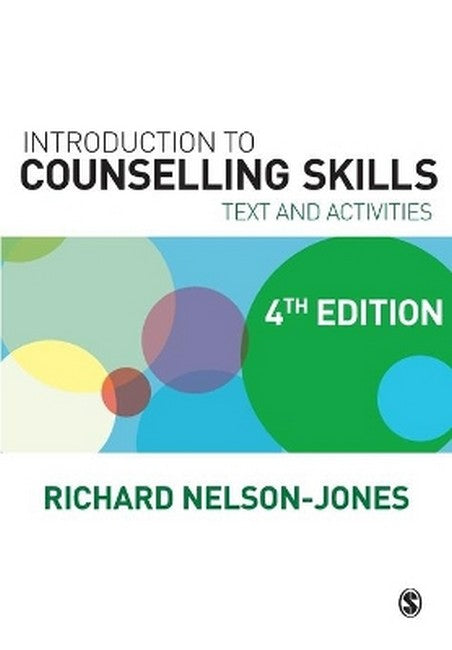PART ONE: INTRODUCTION Who Are Counsellors and Helpers? Creating Communication Skills and Feelings Creating Mind Skills The Counselling and Helping Process Counselling and Helping Relationships PART TWO: THE RELATING STAGE Understanding the Internal Frame of Reference Showing Attention and Interest Reflecting Feelings Starting the Counselling and Helping Process Managing Resistance and Making Referrals PART THREE: THE UNDERSTANDING STAGE Assessing Feelings and Physical Reactions Assessing Thinking Assessing Communication and Actions Challenges, Feedback and Self-Disclosure Monitoring, Summarizing and Identifying Skills PART FOUR: THE CHANGING STAGE Helping to Solve Problems Coaching Skills: Speaking, Demonstrating and Rehearsing Improving Communication and Actions Improving Thinking Negotiating Homework Conducting Middle Sessions Terminating Counselling and Helping PART FIVE: FURTHER CONSIDERATIONS Relaxation Interventions Managing Crises Multicultural and Gender-Aware Counselling and Helping Ethical Issues and Dilemmas Training Groups, Supervision and Support Using Technology in Counselling Becoming More Skilled and Human
Request Academic Copy
Please copy the ISBN for submitting review copy form
Description
'I was taught counselling skills by Richard Nelson-Jones almost forty years ago. Buy this book. He know what he is talking about!' - Windy Dryden is a Professor of Psychotherapeutic Studies and Programme Co-ordinator of the MSc in Rational-Emotive and Cognitive Behaviour Therapy at Goldsmiths, University of London

